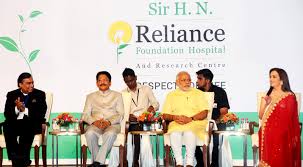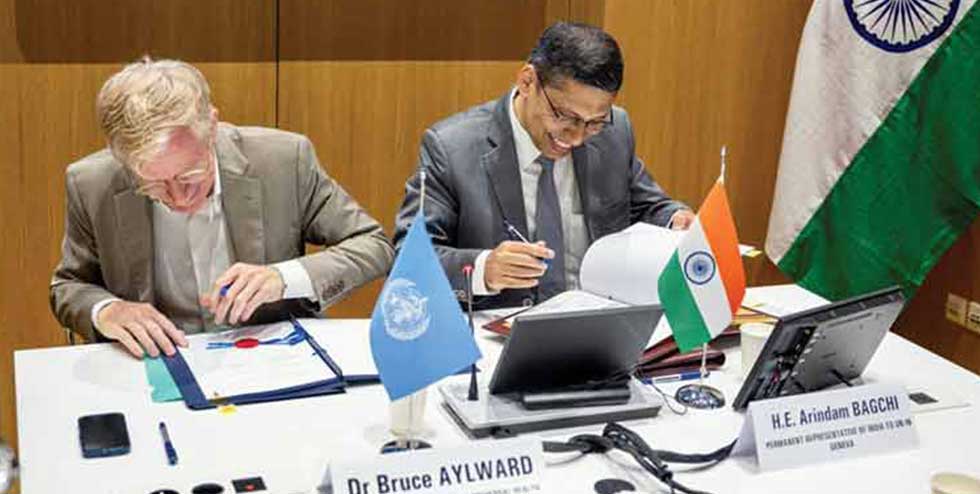When a patient enters the emergency ward of Sir HN Reliance Foundation Hospital and Research Centre in Mumbai, he would be greeted by a doctor, who would be wearing a Google Glass and would already know the patient's entire medical history, allowing the treatment to begin within a few minutes.
The junior doctor can diagnose the patient, consult senior doctors and read the patient's medical history on Google Glass, without taking his eyes off the patient even for a minute. The renovated hospital, which last week was inaugurated by Prime Minister Narendra Modi, would be the Minister Narendra Modi, would be the first in the country to use Google Glass in its everyday operation.
The project is still in its pilot phase and would be deployed across the hospital within a month's time.
SAP has a built an app called 'We Care' for the hospital, which connects the Google Glass with the hospital information system, and all data recorded on the Google Glass can be automatically be stored in the system. Doctors can also pull out various reports about the patient by just tapping on the Glass and instead of scribbling notes in a piece of paper, they can just talk to the Glass, which will type in all the notes for them.
"This remarkable app has the potential to bring patient care to new heights," said Mukesh Jain, CIO at the 345-bed, multi-specialty hospital. "SAP has blended perfectly with We Care solution smooth clinical workflow and the smartphone hands-free format of smart glasses for the potential use of any physician anywhere." Reliance is looking at applying Google Glass in emergency care to start with. When the patient is brought in, the trauma doctor who would be attending to the patient first would have a Google Glass and would be able to look up the patient's past records and also collaborate with other departments as when the patient is brought in.
The information is stored centrally and stored in the hospital information system. Doctor can pull in the patient's X-ray images or radiology reports from the past and use them
"Usually in the healthcare environment, it is only the patient who is stationary—everything else is mobile," said Andy David, Health care Director, SAP APJ. "With the help of the Google Glass, doctors can attend to multiple patients, engage with them and see almost twice as many patients during the rounds. Doctors can take accurate notes on the Google Glass itself.
The data is stored automatically and can be accessed when required." The We Care application, which was designed completely in India by SAP India Labs, could soon turn into a product that will be available to any hospital worldwide. The Reliance hospital is so far the first one to implement it globally.
The Glass costs $1,500 a piece but the same app also works on mobiles and tablets to make it more cost efficient.
As the usage of Google Glass increases, the price of the gadget is expected to go down significantly. Initially seen as just a creepy gadget, Google Glass is seeing many applications in the enterprises recently. In June this year, Dr Pavan Kumar, head, cardiac surgery, at Mumbai's Nanavati Hospital used Google Glass to record a surgery.
Nanavati hospital is also working on an application that will let it use Google Glass for telemedicine.
Several applications are being developed for Google Glass by various developers in the areas of retail, manufacturing and warehouse management, which could gain momentum once Google Glass is officially launched in the country and cost of the device goes down.
SAP Labs India is also working with other smart glass manufacturers such as New York-based Vuzix to design applications for different industry verticals.
Reliance Hospital doctors to use Google Glass to pull patient's medical history using SAP's app








Add Comment